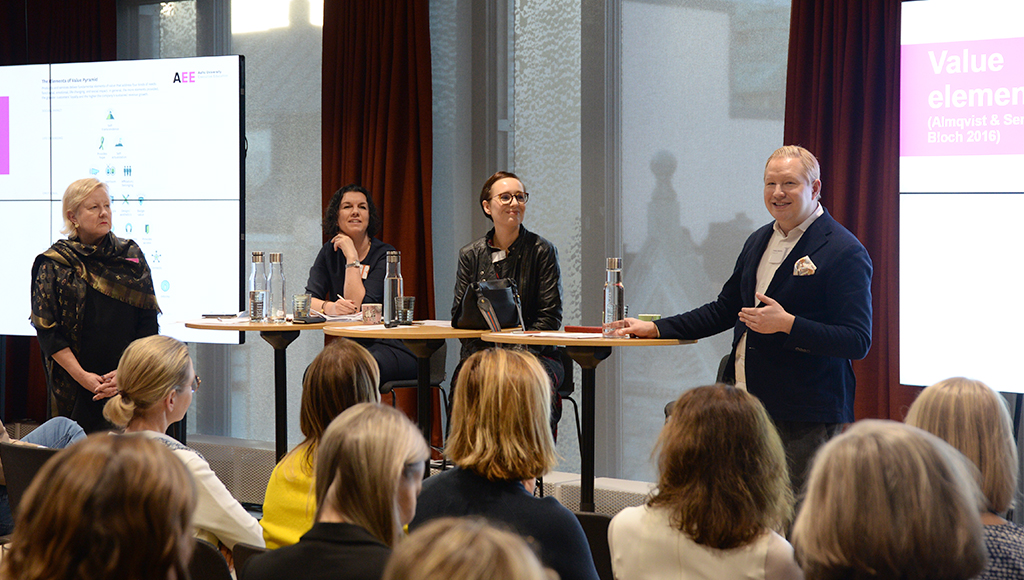
Insights | November 20, 2019
Joint Seminar, key takeaways: The branded workplace – HR and marketing bonding
Nowadays, employers are competing for the best talent, which means that they need to use modern storytelling instead of traditional employer branding methods. In a joint seminar by Roschier and Aalto EE, three accomplished speakers shared their thoughts on ways to make marketing and HR branding meld together.
Dr. Pekka Mattila, Professor of Practice at Aalto University School of Business, spoke about new rules of brand and reputation and why multiple-sided markets matter. Emine founder Susanna Rantanen shared her ideas about winning the war for talent and discussed what employer branding takes. Anu Waaralinna, Roschier Partner and head of the Employment practice, presented her thoughts on how law and brand connect to each other.
Key takeaways
Company reputation: A company’s reputation has a big impact on how candidates perceive the attractiveness of their potential future employers. There is a clearly visible shift from an employer-driven market to a candidate-driven market. This means that employers need to be able to effectively communicate why they are an attractive employer, instead of simply boosting their success and speaking about what kind of employees the company needs. On the other hand, bad reputation will lead to longer and more expensive recruitment processes: the tobacco industry serves as an example of what a bad reputation can do to a company’s recruitment process.
Recruitment marketing and employer branding: Recruitment marketing and employer branding are two different forms of HR marketing. Many companies still focus only on recruitment marketing. Recruitment marketing is done in the short term to meet short term needs, whereas employer branding aims for a long-lasting impact with the intent to form emotional connections between ideal talents and the company. The Modern Employer Branding-method introduces storytelling as a tactic to raise emotions and scheduled, ongoing marketing activities to deliver inspirational, educational and informational content to target audiences. The purpose is to win the audience’s attention in the noise, in order to invite them into a candidate journey with the company. This will foster commitment and deliver measurable returns on investment.
Managers and employees: Nowadays, managers have to be able to motivate and support their employees. Earlier, employees might have thought that “I will stay as long as you will have me”, but today they think that “I will stay as long as I learn something new”. Therefore, employees demand to be actively led by their managers, and abiding by the law is not always enough: the company’s ethics need to be thought through, and work at the company needs to be done in a human-centered way. The lack of managerial work is the most common reason for employment law-related disputes. Consequently, it is important for every work community to take care of their employees and to have a rich and meaningful interaction with them.